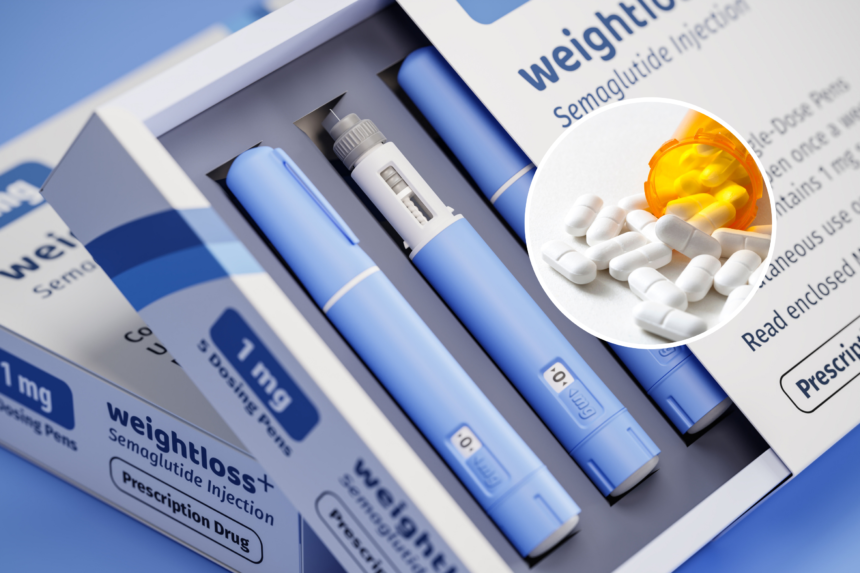Ozempic and related weight loss medications can help people with addiction, as they have been linked to a 40 percent reduction in opioid overdoses and a 50 percent lower rate of alcohol intoxication, according to researchers.
Ozempic is an injectable prescription drug designed to regulate blood sugar levels in Type 2 diabetics. The drug, however, has entered the public zeitgeist because of its expected side effect: weight loss.
Ozempic and its sister drug Wegovy—which have been approved by the FDA for chronic weight management—are based on a molecule called semaglutide, which mimics the structure of a naturally occurring hormone in the body called glucagon-like peptide 1 (GLP-1). . GLP-1 plays an important role in regulating appetite and blood sugar levels by activating specific receptors involved in these pathways.
By mimicking the structure of GLP-1, semaglutide can also activate the receptor, causing satiety while delaying emptying the stomach. In other words, it makes us less hungry and, therefore, less likely to overeat.
To induce satiety, semaglutide interacts with a region of the brain called the mesolimbic system, which overlaps with brain circuits involved in reward and addiction. This led researchers to hypothesize that GLP-1 mimics drugs like semaglutide and can alter the way the brain responds to addictive substances.
To explore these effects, researchers from Loyola University in Chicago studied 503,747 patients with a history of opioid use disorder and 817,309 with a history of alcohol use disorder. Between the two groups, 13,724 participants had a prescription for Ozempic, Mounjaro, or a similar weight loss drug.

Moussa81/aprott/Getty
The team found that people with prescriptions had a 40 percent lower rate of opioid overdose and a 50 percent lower rate of alcohol poisoning compared to those without a prescription for the drug.
“This study shows that patients with heroin or alcohol addiction who are prescribed Ozempic (usually for diabetes or obesity) are less likely to be hospitalized due to heroin overdose or alcohol intoxication,” Matt Field, professor of psychology at the University of Sheffield, said in a statement. “These findings add to other studies, especially animal research, that show that this drug and similar drugs may be prescribed to help people with addiction.”
However, the field added that the cases monitored in this study – those of overdose and intoxication requiring hospitalization – are extreme cases of substance abuse.
“These results are very different from the results used when researchers test new treatments for addiction, so we can see if the treatment helps people stop taking the substance (complete abstinence), or if it helps people reduce the amount of the substance they consume, or how often they consume,” he said.
“It cannot be measured in this study. It opens the possibility that while Ozempic can (for reasons currently unknown) prevent people from taking too much alcohol or heroin who overdose and go to the hospital, it may not help. to reduce the use the substance, or not stop altogether.”
The study authors also point out that the findings are based on observational data, so it’s not clear whether the drug led to a reduction in hospitalizations. Even so, he said the findings should encourage further research into the protective effects of Ozempic and similar drugs for treating patients with substance use disorders.
Do you have a tip on the story of science Newsweek should cover? Do you have any questions about Ozempic or weight loss? Let us know via science@newsweek.com.
Reference
Qeadan, F., McCunn, A., & Tingey, B. (2024). Association between glucose-dependent insulinotropic polypeptide and/or glucagon-like peptide-1 receptor agonist receptors and substance-related outcomes in patients with opioid and alcohol use disorders: A real-world data analysis. Addiction. https://doi.org/10.1111/add.16679




